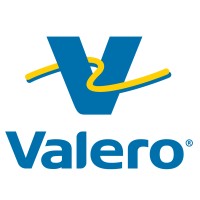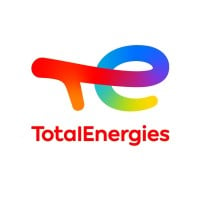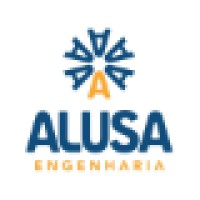Company Cyber Security Posture
NANA
NA Company Details
NA
NA
NA
NA
NA
NA
Scan still pending
NA
NA
Between 200 and 800
This score is AI-generated and less favored by cyber insurers, who prefer the TPRM score.
 NA Global Score
NA Global Score.png)

Company Scoring based on AI Models
| Model Name | Date | Description | Current Score Difference | Score |
|---|---|---|---|---|
| AVERAGE-Industry | 03-12-2025 | This score represents the average cybersecurity rating of companies already scanned within the same industry. It provides a benchmark to compare an individual company's security posture against its industry peers. | N/A | Between 200 and 800 |
Company Cyber Security News & History
| Entity | Type | Severity | Impact | Seen | Url ID | Details | View |
|---|
Company Subsidiaries

NA
Access Data Using Our API

Get company history
.png)
NA Cyber Security News
Cybersecurity breach at hedge fund manager Waratah may have exposed sensitive client data
Money manager told clients the incident may have impacted investor names, addresses, SINs, account numbers and other personal information.
Don’t fall for these 4 cybersecurity myths
Myth: Most hacking is the work of super genius computer nerds · Myth: Two-Factor Authentication Is a Waste of Time · Myth: VPNs Are Totally ...
Israeli-founded cyber startup set to be snapped up by Datadog in $1 billion deal
Upwind has developed a platform to protect businesses from malicious hackers by identifying risks and addressing their most critical ...
SharePoint hacking campaign affects hundreds of systems worldwide
The global hacking campaign linked to the ToolShell vulnerability in Microsoft SharePoint has compromised hundreds of systems across the globe, ...
Clorox files $380 million suit blaming Cognizant for 2023 cyberattack
Hackers breached Clorox in August 2023 in a social-engineering attack that disrupted its IT infrastructure and its ability to ship core products ...
Contract lapse leaves critical infrastructure cybersecurity sensor data unanalyzed at national lab
Data from sensors that detect threats in critical infrastructure networks is sitting unanalyzed after a government contract expired this weekend ...
Jim Cramer says buy these 2 cybersecurity stocks in the wake of Microsoft's attack
CNBC's Jim Cramer has long believed that cyber stocks are an essential part of investors' portfolios.
As AI tools take hold in cybersecurity, entry-level jobs could shrink
AI in cybersecurity is transforming team roles, reducing entry-level jobs while creating new opportunities and reshaping hiring priorities.
Agentic AI Turns Enterprise Cybersecurity Into Machine vs. Machine Battle
The first AI-driven preemptive cyber-defense has taken place. Now, corporate leaders may need to confront questions about agentic AI.

NA Similar Companies

PEMEX
Petróleos Mexicanos es la mayor empresa de México, el mayor contribuyente fiscal del país, así como una de las empresas más grandes de América Latina. Es de las pocas empresas petroleras del mundo que desarrolla toda la cadena productiva de la industria, desde la exploración, hasta la distribució

Ecopetrol
Ecopetrol (NYSE: EC) es la compañía más grande en Colombia y uno de los principales grupos de energía de Latinoamérica. Cuenta con más de 18.000 empleados y es responsable del 60% de la producción de hidrocarburos en Colombia. Es propietaria de las dos refinerías del Colombia y de la gran pa

Eram Holdings
Eram Holdings, since its humble beginning in the 1990s, has experienced significant growth. Today, we have expanded into a business conglomerate operating in 9 business verticals with headquarters in Saudi Arabia, regional offices in India, UAE and with over 150 offices spread across 13 countries in

Valero
Valero is an international manufacturer and marketer of transportation fuels and petrochemical products. We are a Fortune 500 company based in San Antonio, Texas, fueled by nearly 10,000 employees and 15 petroleum refineries with a combined throughput capacity of approximately 3.2 million barrels pe

TotalEnergies
Have you ever thought of offering your skills and expertise to a multinational company? Give your best to better energy and make the commitment with TotalEnergies. With over 500-plus professions in 130 countries, we offer high safety and environmental standards, strong ethical values, an innovatio

ALUSA
A Alusa Engenharia uma empresa de infraestrutura que está presente no mercado há 50 anos e atua como integradora de projetos, obras e serviços ligados ao setor elétrico, de telecomunicações, óleo e gás, ampliando gradativamente a participação em outros segmentos da engenharia e construção civil, com

Frequently Asked Questions
Explore insights on cybersecurity incidents, risk posture, and Rankiteo's assessments.
NA CyberSecurity History Information
How many cyber incidents has NA faced?
Total Incidents: According to Rankiteo, NA has faced 0 incidents in the past.
What types of cybersecurity incidents have occurred at NA?
Incident Types: The types of cybersecurity incidents that have occurred include .
Additional Questions
What Do We Measure?
















Every week, Rankiteo analyzes billions of signals to give organizations a sharper, faster view of emerging risks. With deeper, more actionable intelligence at their fingertips, security teams can outpace threat actors, respond instantly to Zero-Day attacks, and dramatically shrink their risk exposure window.
These are some of the factors we use to calculate the overall score:
Identify exposed access points, detect misconfigured SSL certificates, and uncover vulnerabilities across the network infrastructure.
Gain visibility into the software components used within an organization to detect vulnerabilities, manage risk, and ensure supply chain security.
Monitor and manage all IT assets and their configurations to ensure accurate, real-time visibility across the company's technology environment.
Leverage real-time insights on active threats, malware campaigns, and emerging vulnerabilities to proactively defend against evolving cyberattacks.




